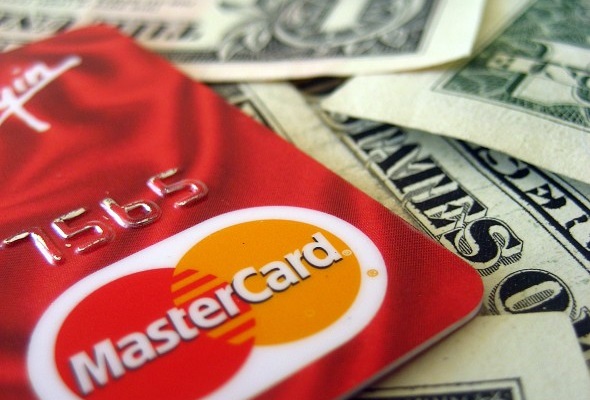There was a time when a trip to the supermarket ended with the question from the cashier – paper or plastic? The cashier was of course asking about what type of bag you wanted your groceries packed in. While paper bags fell into disuse the phrase of paper or plastic stuck around but the meaning changed to cash or credit card.
Check out our free budget calculator.
For many, this question has led to out of control credit card spending. The logic being why put off getting what you want just because you can’t pay for it!
How Expensive Is That Latte?
Of course the idea of giving up your credit cards is crazy. I for one would never suggest you do that. I mean if after all you enjoy a $7 cup of coffee who am I to say don’t have it!?! You’re thinking I don’t drink $7 cups of coffee! Well if you paid for that latte with a credit card and you don’t pay that credit card balance off in full every month you do drink $7 cups of coffee.
Here’s how you’re paying 40%, 50% or 60% more than you think for things like a latte grande. An average credit card has an interest rate of 15% plus prime or around 18%. If you live in NYC and buy a Starbucks Latte Grande for about $4.80 and pay with a credit card that carries a balance month after month, the interest adds up fast.
If you stopped using the credit card you used to buy that latte today and took four years to pay off the balance you will have paid $7 for that cup of coffee and if your interest rate is on the higher side that same cup of coffee would be $7.50. Coffee isn’t the only thing affected by credit card balances. A 30% off sale item becomes 20% or 30% over regular price when credit card interest is added in.
Get a Grip
Controlling overspending with credit cards is not all that complicated and doesn’t have to mean giving them up completely. While there is a lot to be said for going plastic free that’s another article. Going cold turkey and cutting up all your cards and paying down your balance over time and ultimately reapplying for one or two cards for emergencies is great. It’s not always possible. (And it can impact your credit score.)
The alternative is to use the psychology of credit cards against itself or in reverse. Credit cards are addictive because they work on our impulse centers, like gossip magazines and beef jerky sticks at the gas station checkout. Take away the display and chances are you wouldn’t go out of your way to buy the magazine or beef jerky.
The same is true for credit cards, so leave them home when you go shopping. Just carry a debit card or better yet cash so you can only buy what you can actually pay for in full at the time. If your impulse to shop till you drop leans toward the online world, try freezing your credit cards in a block of ice so you aren’t tempted to whip them out for a late night shopping spree.
Phone a Friend
Overspending is like any other addiction in that there is a little voice in your head that whispers all the reasons you deserve the object of your desire and why it’s not bad. Our capacity to self-justify our actions is enormous. The solution is to take the control out of your own hands and give it to a friend.
Find a friend or relative or spouse who can act as your conscience. When the impulse to buy something comes around, call them for permission to make the purchase. The power of social pressure is great. The act of even having to seek approval can be enough to dissuade you from your splurge. The disapproval and disappointment of a loved one can often stop the most dedicated overspender dead in their tracks.
The bottom line is to find a way that works for you one- a way that suits your personality and overspending habits. Find your hot buttons and put mechanisms in place to prevent you from accessing them or at least slow you down long enough to consider the actual cost of that bargain that’s so good that you’re willing to overpay by 40 or 50 percent.
Photo Credit: 401(K) 2013
